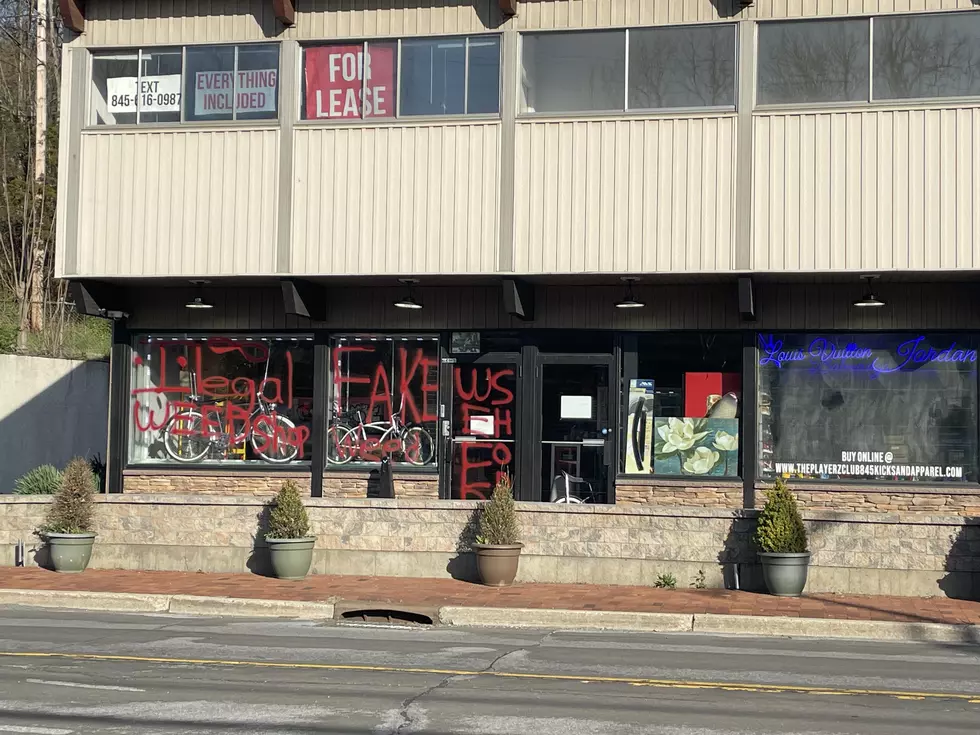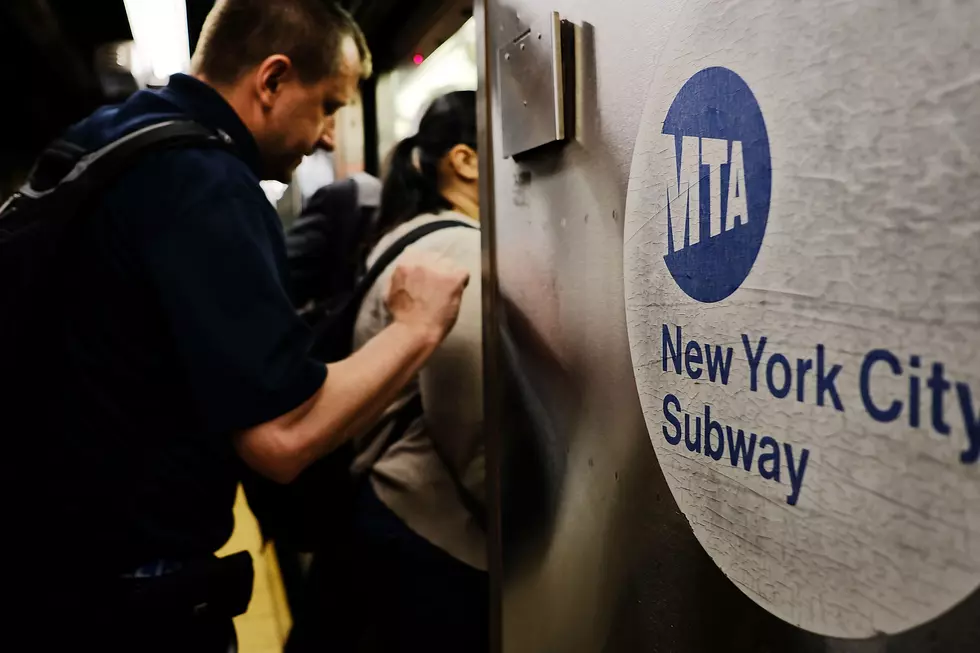
Student Activists Lobby for Protection of 1st Amendment Rights
Today, February 22, we celebrate Student Press Freedom Day. Today's media climate is hectic and biased as it is, and student journalists face many challenges with First Amendment rights and censorship. In recognition of Student Press Freedom Day, I was honored to speak with a couple of incredible journalists and activists at the forefront of some of these issues, ready to shed light on potential solutions and why student press freedom matters to the future of journalism and a democratic society.
The Student Press Law Center Advocates for First Amendment Rights
The Student Press Law Center (SPLC) leads the charge in supporting and defending the rights of student journalists and faculty advisers nationwide. With this year’s theme 'Powerfully Persistent' for Student Press Freedom Day, student journalist experts will expose rampant censorship including:
• Pressure to dilute stories, suppress hot-button topics, and portray schools positively.
• Punitive measures like shutting down journalism classes for publishing controversial stories.
• Intimidation to avoid topics that might "rock the boat."
View this post on Instagram
The Student Press Law Center unites many great activist groups, including New Voices New York. New Voices New York brings together a wide range of allies, spanning from student journalists from Staten Island and Corning, advisers from Buffalo, professors from Syracuse University, journalists from Albany and journalism instructors from NYC in our coalition, and we're all focused on one mission: giving student journalists full access to their First Amendment rights so that they can share stories that matter to their classmates and communities. The New York legislature is in session and considered A 1345, sponsored by Representative Donna Lupardo, and S 647, sponsored by Senator Brian Kavanagh. New York does not generally hold public hearings on legislation, and so advocates are working behind the scenes on phone-banking, letter-writing, and meetings with legislators to gain support.
View this post on InstagramA post shared by Student Press Law Center (@studentpresslawcenter)
Pratika Katiyar
Pratika [prə-TEE-kə] Katiyar [ka-TEE-yar], the Student Member of the Student Press Law Center’s Board of Directors, is an honors student at Northeastern University, majoring in Communication Studies and Business Administration with a Finance concentration. She serves as the president of Northeastern Women in Business and works as a research assistant at the Berkman Klein Center for Internet & Society at Harvard Law School, with prior experience in privacy and program management at Amazon. A fervent Gen Z free expression activist, Pratika successfully lobbied for New Voices legislation in Virginia and nationwide, testifying for the New Voices Virginia Bill in January 2020 and participating in the New Voices Student Leaders Institute.
As a Student Press Freedom Day 2022 Co-chair, she led a campaign raising awareness about First Amendment protections for student journalists. Pratika has spoken at panels for PEN America, Georgetown Law School, and the Initiative for a Representative First Amendment at Harvard. Notably, she participated in a panel at the 2022 United Nations World Press Freedom Day conference, addressing censorious attacks on education. Her impactful work has garnered recognition in outlets such as Teen Vogue, NBC Washington, ABC, and she has contributed op-eds to the Richmond Times-Dispatch, CNN, Nieman Reports, and more.
View this post on Instagram
I had the pleasure of speaking to Pratika over the phone recently to discuss Student Press Freedom Day, and her work with SPLC. You can hear that article here. Under that, keep reading for my discussion with journalist Hanna Olson.
Hanna Olson
Hanna Olson is an Editor-in-Chief of her school newspaper, the Mountain View High School Oracle, and has spearheaded an effort against censorship within her school community. After administration cut an introductory journalism class and removed the Oracle’s adviser soon after the newspaper published an investigative article about sexual harassment, Hanna began speaking at school board meetings, working with a First Amendment attorney, and giving interviews with local newspapers including the Mountain View Voice and Los Altos Town Crier to advocate for student press freedom. In October, she attended a Bay Area journalism convention and gave an on-stage interview about her experiences with censorship and the importance of protecting student journalism.
View this post on InstagramA post shared by Student Press Law Center (@studentpresslawcenter)
Below, I had a chance to ask Hannah some questions regarding Student Press Freedom Day and issues surrounding censorship.
What is your affiliation with the Student Press Law Center?
Last year while I was a page editor for my school newspaper, our writers and editors received guidance from the Student Press Law Center's legal hotline at an imperative time, when our publication received pressure from administration to remove content and not publish an article about sexual harassment. We were referred to an SPLC student press attorney who advised us about our free speech rights and protected speech, which empowered us to follow through and publish this article.
What is your background in student journalism?
I took my first journalism class sophomore year. Junior year, I served as an editor for my school newspaper's In-Depth analysis page. This year, I am an editor-in-chief of my school newspaper, the MVHS Oracle. Through student journalism, I have gotten to report on the issues that matter most within my high school community.
View this post on Instagram
What have been your inspirations?
I am inspired by Oracle's previous student editors, many of whom have gone on to pursue journalism in college, because of their incredible leadership. I am inspired by student journalists around the United States who have fought for their newspaper's rights to share stories without censorship. Journalism inspires me because it has allowed me to find my voice within my community and given me new leadership opportunities, and I continue to be inspired by the work of professional investigative journalists.
What kind of censorship have you seen and why?
I have seen direct censorship, in the form of pressure to omit details and names from an article. I have also seen indirect censorship through the removal of my school's journalism advisor late in the school year, without prior notice or warning from administration, after the article about sexual harassment was published. I have also experienced self-censorship as a result of fear-mongering from administration, meaning that I and other editors made conscious choices to remove certain parts of the article because we had been made to feel that including these sections would be harmful or damaging to our community. Censorship comes in several forms, both direct and indirect, and it is crucial that student journalists are educated and informed about what actions can constitute censorship depending on their state's legislature and educational code.
View this post on InstagramA post shared by Student Press Law Center (@studentpresslawcenter)
How have you and those around you tried to combat said censorship?
I have delivered speeches at board meetings to defend Oracle's autonomy, advocating for the protection of our program in the face of unprecedented program changes including the removal of our adviser and the cutting of an introductory journalism class. I have also shared the Oracle's story by giving interviews with local news outlets, drawing more local attention to our cause. Oracle students have been incredibly persistent in our advocacy for our journalism program's wellbeing. In addition, I was given the opportunity to give an interview onstage with Nadia Soberg, an editor-in-chief of Palo Alto High School's Verde Magazine, about censorship and student press freedom at a Northern California journalism convention.
How are you promoting free speech and journalism in your scholastic community?
Through being part of my school newspaper and covering meaningful, relevant, and local stories, I hope to contribute to a robust journalism program that strengthens our local democracy. I also support my school's journalism program through my leadership role, and I will always fight for our program to remain protected and stable even if that means publicly questioning the actions and decisions of administration.
View this post on Instagram
What are your feelings about the media landscape today?
I think that now more than ever, with the rise of misinformation and disinformation campaigns on social media apps like X, Instagram, and TikTok, it is pertinent that students have access to local, high-quality sources of news. For most students at my school, the Oracle is the only print newspaper they read Journalism is a powerful tool for education and community building, and the sharing of real, important local stories is a great foundation for combatting the broader spread of false information in the mass media.
Why is Student Press Freedom Day so important?
Student press is foundational for community well-being. It has the power to inform and inspire students to pay attention to what is happening within their communities. Without student press freedom, important stories like Oracle's In-Depth article about sexual harassment would go untold, which is a disservice to the broader community and to the students who were brave enough to share their stories. We must rally support around student journalists because the work that they do is powerful for inciting change within their local communities.
Win Hudson Valley Trivia Night With These Incredible Fun Facts
Gallery Credit: Conor Walsh
Take a Tour of The New Hudson Valley Hospice House in Hyde Park, NY
Gallery Credit: Conor Walsh
More From WZAD-WCZX The Wolf






